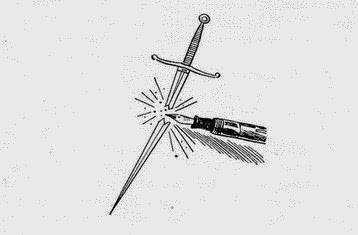"ATLANTIC SONG III" and text © David F. Brandon, March 2006 / 2013
Saturday, June 03, 2006
A MESSAGE FROM THE DROWNED AND LOST
They are drawn to tragedy like the night insects are drawn to a naked flame, but somehow their tragedy isn’t a tragedy of personal suffering like ours is, it isn’t real. They don’t live with tragedy. They don’t live tragedy. Their tragedy is a circus of crocodile tears spilt over events and people they have never really been close to, and will never be close to, but which have arrived in their houses, as if by magic, through their television boxes. Do they remember the pleading faces of my fellow travellers as they were bussed back south into the African desert after being repatriated from those Spanish towns on the northern coast of our continent? Can they remember the tears we shed, the desperation in our hearts that was plain for all to see? Well, that had to be the image of the last twelve months which best describes our lives of quiet timeless pain and disappointment. Do they remember that? Perhaps they remembered long enough to buy off their guilty consciences by donating a small sum to their favourite charity, and, honestly, they are quite generous in that I have to say. We’ve drunk their powdered milk. It had the Spanish flag on the box. But they don’t feel. I mean, they don’t feel us. They don’t feel our desperation. They can’t put themselves into our skins. For more than thirty seconds. Then we disappear into the dust that is in their memories.
And me and my family don’t, can’t, cry crocodile tears, and nor do the spirits of the drowned and lost. Has the fluttering of our wings torn a terrible hole in the fabric of the universe? We, who are there, know it has and existence will never be the same ever again. We are the ghosts and spirits that occasionally drift into their lives when we get caught on camera and broadcast on their television sets. Thirty seconds. We last thirty seconds. Thirty seconds, if we’re lucky.
Three days of buses in the desert with little or no food and water. Our hearts and plans for the future are crushed, our families won’t eat. Or three days in the Atlantic. We made thirty seconds of news, we made two or three spots, before twenty minutes of football superstars, gods we watched on our communal television back in the village. When we were lucky and had fuel for our generator. And so we disappear, like the night insects disappear as they circle out of the light of the flame of our cooking pots, like the night insects vanish from the blue light of our old television, screening a life where there is work and no hunger, or thirst. Where our children won’t die so ill, so young. So helpless. Where people will help us instead of robbing and murdering us, or using us as cannon fodder for their private wars. And so we disappear as the moth disappeared after fluttering around the sick yellow light of our forty watt bulb, when we were lucky and had fuel for our generator.
And televisions don’t only flicker for thousands of ghostly families in Africa, no, they flicker their blue shadows in Eastern Europe and South America too, but for them we disappear off screen. We disappear into the deep blue Atlantic, or into the parched dunes of the desert, or into the dilapidated housing projects or orphanages of long departed regimes, or regimes that just don’t care, but mostly we disappear from their hearts and minds. Even if we aren’t drowned or starved or in our graves, we have gone and they are drawn to their tragedies, and we are less than moths circling a dying flame, and their tragedies last days and days and days on their home cinema sets in brilliant colours, because their tragedy is the death of Rocío Jurado, and we can’t compete for tragedy and ceremony with Rocío de España because we’ve burnt our wings in the flames and have fallen into the dust of forgetfulness, and must pray to the spirits for the opportunity for another thirty seconds of tragic television time in a universe that is deeply wounded.
"ATLANTIC SONG III" and text © David F. Brandon, March 2006 / 2013
"ATLANTIC SONG III" and text © David F. Brandon, March 2006 / 2013
Subscribe to:
Post Comments (Atom)





No comments:
Post a Comment